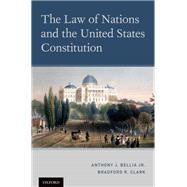The Law of Nations and the United States Constitution
, by Bellia Jr., Anthony J.; Clark, Bradford R.- ISBN: 9780197500163 | 0197500161
- Cover: Paperback
- Copyright: 2/12/2020
The Law of Nations and the United States Constitution offers a new lens through which anyone interested in constitutional governance in the United States should analyze the role and status of customary international law in U.S. courts. The book explains that the law of nations has not interacted with the Constitution in any single overarching way. Rather, the Constitution was designed to interact in distinct ways with each of the three traditional branches of the law of nations that existed when it was adopted - namely, the law merchant, the law of state-state relations, and the law maritime. By disaggregating how different parts of the Constitution interacted with different kinds of international law, the book provides an account of historical understandings and judicial precedent that will help judges and scholars more readily identify and resolve the constitutional questions presented by judicial use of customary international law today. Part I describes the three traditional branches of the law of nations and examines their relationship with the Constitution. Part II describes the emergence of modern customary international law in the twentieth century, considers how it differs from the traditional branches of the law of nations, and explains why its role or status in U.S. courts requires an independent, context-specific analysis of its interaction with the Constitution. Part III assesses how both modern and traditional customary international law should be understood to interact with the Constitution today.







